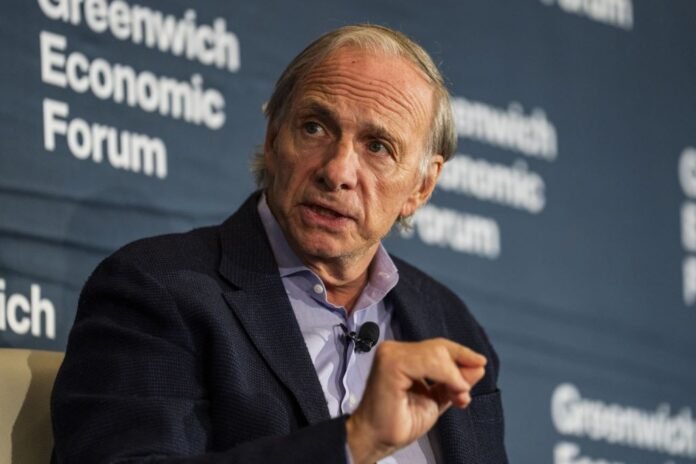Billionaire investor Ray Dalio has warned that the United States faces economic risks far greater than a typical recession, arguing that President Donald Trump’s aggressive tariff policies and ballooning debt could trigger a breakdown in the global financial system.
Speaking on NBC’s Meet the Press, the founder of Bridgewater Associates cautioned that the world is experiencing profound political, economic, and geopolitical shifts, which historically precede economic crises.
“I think that right now we are at a decision-making point and very close to a recession,” Dalio said.
“I’m worried about something worse than a recession if this isn’t handled well.”
Tariffs and Rising Global Tensions
Dalio pointed to rising debt, internal political divisions, and shifting global power dynamics, likening the current economic climate to the 1930s—a period marked by trade wars, financial uncertainty, and geopolitical instability.
“Such times are very much like the 1930s. If you take tariffs, if you take debt, if you take the rising power challenging the existing power—those changes in orders and systems are very, very disruptive,” he explained.
Trump’s recent trade measures, including a minimum 10% tariff on all imports, have further fueled concerns. While some nations were temporarily spared, China faced a 145% import duty, prompting retaliatory tariffs of 125% on U.S. goods.
Potential Breakdown of the U.S. Monetary System
Dalio described a worst-case scenario, in which the U.S. dollar’s role as a global store of wealth weakens, while internal divisions escalate beyond the norms of democratic politics.
“That could be like the breakdown of the monetary system in ’71. It could be like 2008. It’s going to be very severe,” he warned.
He argued that if these economic pressures combine with rising global conflicts, the result could be financial instability beyond anything seen in recent history.
“I think it could be more severe than those crises if these other matters simultaneously occur.”
Dalio’s concerns align with Goldman Sachs, which recently raised the odds of a U.S. recession to 45% within the next 12 months. This adjustment came after Trump’s April 2 tariff announcement but before he temporarily paused additional reciprocal duties ranging from 11% to 50%.
“The real test will come after the current 90-day negotiation period ends,” Dalio said.
“What was put there is like throwing rocks into the production system. The impact on global efficiency and costs will be enormous.”
Uncertain Path Forward
Dalio acknowledged that tariffs could be a useful tool for bringing back domestic manufacturing and generating government revenue but stressed that execution matters.
“How that’s done—whether in a practical, stable way with quality negotiations or in a chaotic, disruptive way—makes all the difference in the world,” he said.
His comments fuel ongoing debates over how the U.S. economy will weather these geopolitical and financial challenges.
As global markets react to new trade policies and economic forecasts shift, many experts are watching closely to see whether the U.S. will avoid or plunge into a deeper financial crisis.
Like 👍, Comment, share this article, and Follow us on our social media handles.








